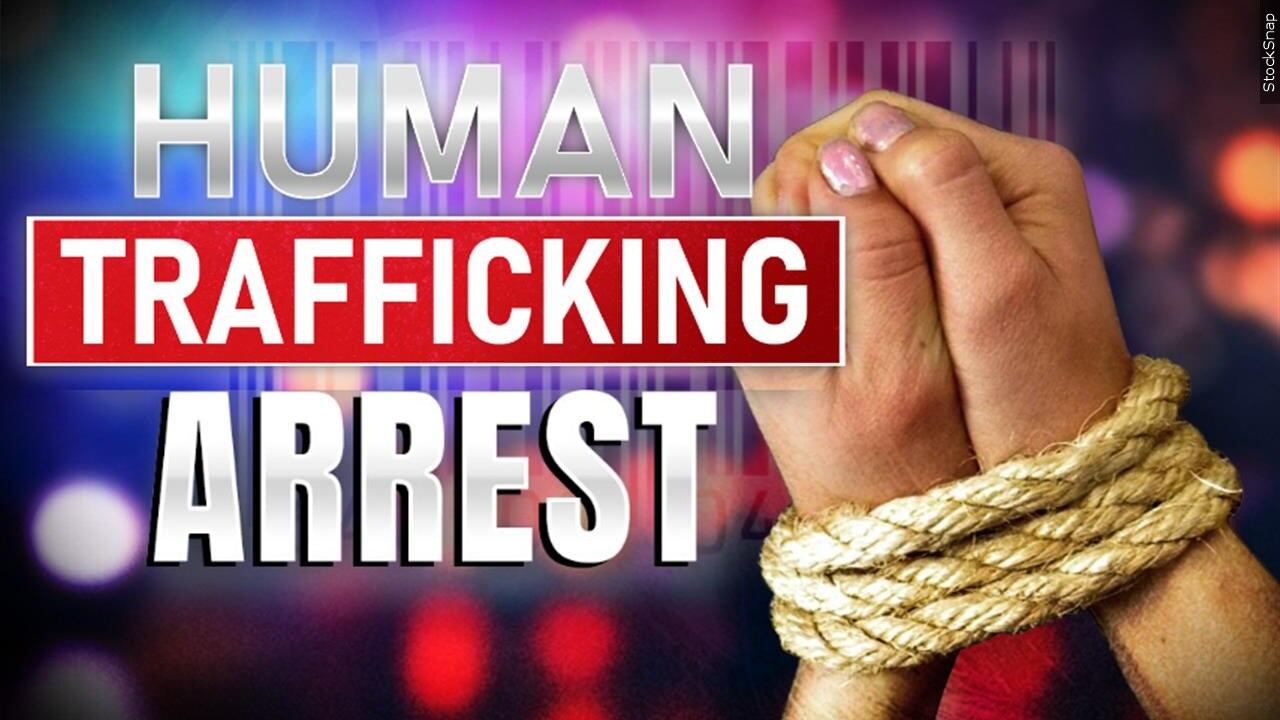Human Trafficking: The Alarming Rise and Recent Arrests in the QCA Demand Your Attention

DAVENPORT, Iowa (KWQC) - According to the U.S. Department of Justice, human trafficking generates $32 billion a year, globally.
Human trafficking is the world’s fastest-growing criminal enterprise.
Just a few days after a Bettendorf massage parlor was raided and the manager charged with human trafficking charges, another string of human trafficking arrests in Geneseo, Illinois and a human trafficking investigation in Louisa County, Iowa has people wondering, is this a new and growing problem for the QCA?
“It is something that has increased a lot in the last few years,” Scott County Sheriff Tim Lane said.
Local lawmakers and law enforcement say it’s not just a problem here but all across the country.
“So, surprisingly, the Quad Cities is really not any different than any other location in the country. These businesses are actually showing up all around the country right now. So what we find is that when one of these businesses closes down and the individuals are arrested, what we’re finding is that they are leaving the state; they’re going to other parts of the country, and their replacements come from all over the place,” Lane said.
On a global scale, human trafficking generates $32 billion a year. That statistic comes from the US Department of Justice office, also reporting that human trafficking is the second most profitable criminal enterprise in the world after drug trafficking.
But what exactly is it?
“Human trafficking is modern-day slavery,” Maggie Tinsman, former Iowa State Senator, said.
“It is transporting an individual involuntarily for whatever, you know, services it may be,” Mike Halpin, Illinois State Senator, 36th District, said.
The employees involved in the latest services case out of Bettendorf are now part of over 27 and a half million victims estimated worldwide. A statistic that both current and former senators are working to change.
Tinsman is passionate about the issue and helped pass Iowa’s first anti-trafficking law in 2006; now she’s helping survivors in many ways, one of which is through family resources.
“They have a group called Braking Traffik, which I started, and that is to find resources for survivors, for victims,” Tinsman said.
Her advocacy continues through the Iowa Network Against Human Trafficking, where she serves as secretary and chair of the Legislative Advocacy Committee.
Halpin has a bill waiting to be signed that incentivizes businesses to better look out for these types of activities.
“So Senate Bill 1422 would allow local governments, through their permitting process and their ordinances, to hold businesses accountable to their duty to train their employees to spot and recognize human trafficking. Right now, the law has been on the books for several years; employees of these companies are required to go through the training, and the company is required to offer it, but now we have another incentive for local businesses to make sure they do that training,” Halpin said.
From funding to raising awareness, both agree that there is still much work to be done.
“I’m elected to represent the community and particularly the most vulnerable members of the community, and we can’t allow this type of crime to continue anywhere in the country, but certainly not here in our own community. It takes all of us to try to speak for people who can’t always speak for themselves,” Halpin said.
Senate Bill 1422 passed in both the Illinois House and Senate. It now awaits a signature from Illinois Governor J.B. Pritzker; Halpin hopes that the signature comes over the summer.
Yet, funding remains a major hurdle. Nine Iowa nonprofits providing vital survivor services are facing cuts. Advocates urge the legislature to approve $1 million for the Human Trafficking Survivor Services Fund in the 2027 state budget. $150,000 was passed by the legislature in the 2026 budget.
Police encourage anyone who suspects human trafficking to report it immediately. Tips can be submitted anonymously by calling the state of Iowa human trafficking hotline at 1-855-614-4692 or you can contact your local law enforcement.
Post a Comment for "Human Trafficking: The Alarming Rise and Recent Arrests in the QCA Demand Your Attention"
Post a Comment